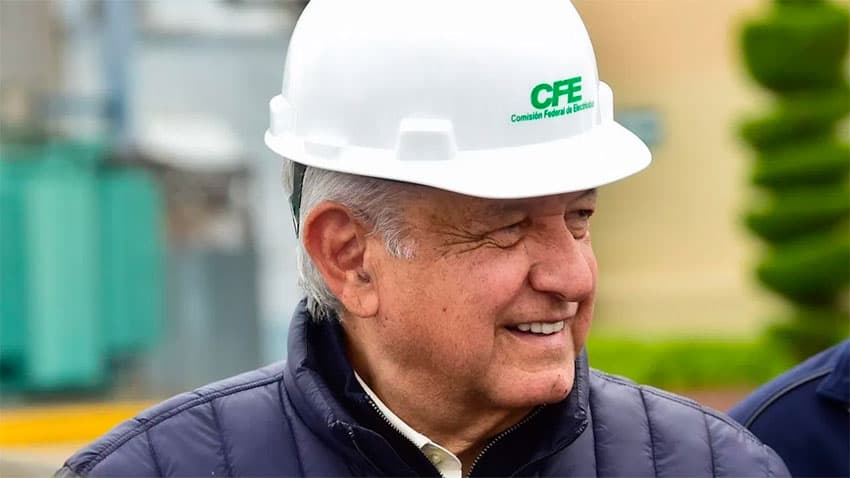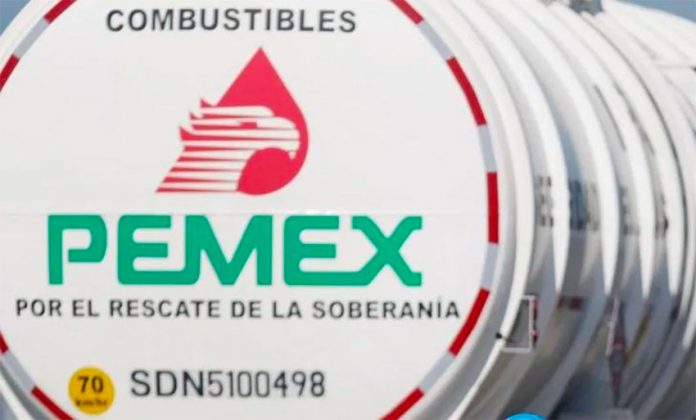Andrés Manuel López Obrador, Mexico’s controversial president, has embarked on a program of national change he grandly calls the “Fourth Transformation.” Underpinning this historic overhaul are a costly series of infrastructure investments and an array of welfare initiatives.
So far, they have been paid for by a shift in government spending and increased tax collection. However, sustaining these programs will require new revenue sources and, as he has promised not to raise taxes or take on additional debt, that leaves just one option: Mexico’s two state-owned energy companies. This is where his whole project falls apart.
López Obrador, or AMLO as he is known, dreams of times when the national oil company Pemex was a cash cow. Yet those days are long gone, and his policies all but guarantee they will remain so. For one, a mix of nationalist energy policies is undermining the efficiency and profitability of both Pemex and the Federal Electricity Commission (CFE), draining scarce fiscal resources. Furthermore, these policies are undermining the CFE’s capacity to deliver the cheap and clean electricity Mexico needs for economic growth. Yet without the extra tax revenues that come with faster growth, his vision of a transformed Mexico will fail.
Take Pemex. It has been losing billions of dollars, failing to meet its production targets, and its reserves continue to decline. The firm’s bonds have lost their investment grade, making its enormous debts more expensive to finance. The government’s decision to reduce private investment in the energy sector, and to plow several billions of dollars into building an unnecessary refinery, have further hurt this troubled firm.
Even if Pemex was a healthy company, doubling down on fossil fuels is an unsustainable strategy. The global economy is transitioning towards renewable energy: British oil company BP says it is shifting into green energy, while General Motors is going all-electric. Oil-based fuels are clearly the past, not the future.

Then there is the CFE, the giant utility that is Mexico’s second most powerful state-owned company. Under a new five-year plan personally endorsed by López Obrador, the CFE will end the electricity auction system that had provided users with access to cheap renewable energy. This will be replaced instead by its own power generation, which is far more expensive.
At the same time, López Obrador has promised to not raise household electricity prices. As a result, either government subsidies will be needed to make up the difference, further draining public funds, or industrial tariffs will need to be raised, undermining competitiveness. Under either option, Mexico shoots itself in the foot.
The CFE also plans to exclude any new capacity in renewable energy. This will jeopardize the estimated 65,000 jobs in the solar sector. More broadly, it will limit Mexico’s ability to attract new industrial investment, given that international companies increasingly set stringent clean energy requirements for their production facilities. Both will further undermine private investment just as Mexico’s economy emerges from a pandemic-induced slump.
These mooted changes in CFE policy have already faced legal challenges. The Supreme Court has said this nationalist energy strategy is unconstitutional and, because it favours domestic investment over foreign firms, elements of it may be at odds with several trade agreements, including the USMCA with the U.S. and Canada.
Nevertheless, López Obrador will not back down, despite the potentially expensive international arbitration that lies ahead. Nor does he seem moved by evidence that his strategy is failing. Quite the contrary. The impact of the cold snap last month in Texas, which dramatically reduced flows of cross-border natural gas and caused blackouts throughout Mexico, was mitigated by renewable electricity supplies. Yet the president took the incident as evidence that supported his plans.
How will Mexico generate the energy that it needs? How will it produce the strong growth needed to replace the jobs and firms lost during the pandemic? How will the government find the funds needed to pay for the president’s priority infrastructure projects and social welfare programs?
Without a shift in energy policy, which seems unlikely, none of these things seem possible. Mexico’s economic future, and the future of López Obrador’s “fourth transformation,” look bleak.
The writer is professor of international relations at the University of Southern California. Pedro Niembro of Monarch Global Strategies co-authored this piece.
© 2021 The Financial Times Ltd. All rights reserved. Please do not copy and paste FT articles and redistribute by email or post to the web.
